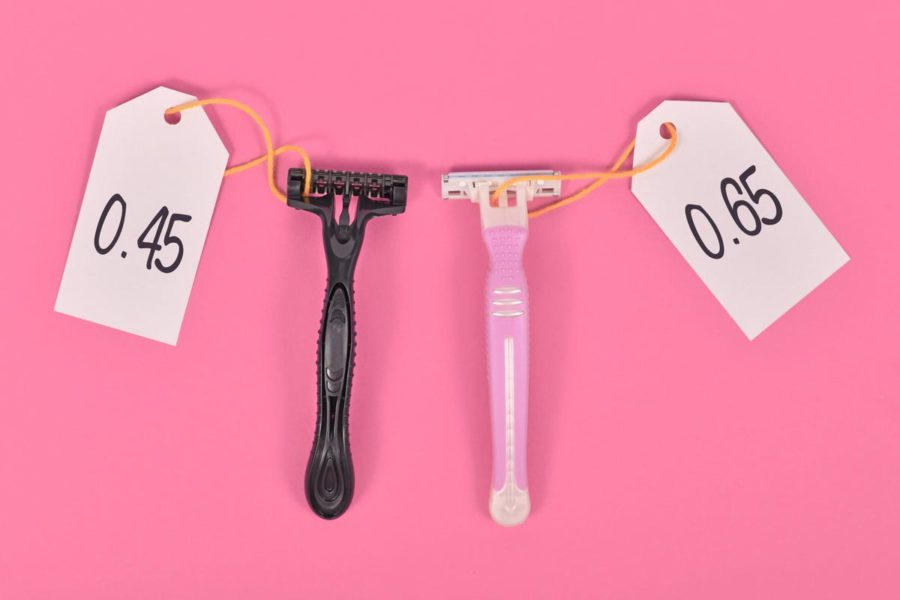Why should you care about woman’s healthcare?
Pink Tax is defined as the “tax” that women pay for the same or similar male-branded products. Obviously, it’s not really a government-mandated tax, it’s just businesses hiking up products that are specifically for women, or “pink.” An example of this would be razors. According to thebalancemoney.com, women’s razors cost an average of 25% more than men’s razors for being, well, advertised for women.
I’m not going to talk about the Pink Tax overall though, I’m gearing this conversation more towards feminine products: pads and tampons. When I was growing up, it was told to me many times, by many different people, that these products must be kept hidden, or stories from women who dropped a tampon out of their sleeve and were “just so embarrassed.” They’re taboo; not talked about unless it’s between mothers and daughters behind closed doors.
So, what makes these things so hard to talk about? Our culture, influenced strongly by religion, has associated sexual reproduction with evil spirits, shame, and embarrassment for centuries. “Purity Culture”, in which some people practically give their lives up to “stay pure,” has also influenced women to not talk about their reproductive health.
We have made a few steps in the right direction regarding sexual health, specifically it being taught in schools. I’m sure everyone remembers their awkward fifth grade puberty talk, their seventh grade required health class, and then their freshman-year required health class. I’ll give props to the Fargo Public Schools district for not being abstinence-only education, and educating us more than some other districts, but there are still some serious gaps in reproductive health education. There was little discussion beyond labeling the anatomical parts of the male and female reproductive systems and definitions of the various STDs it’s implied you’ll catch with any sexual activity.
This lack of basic knowledge by the general population is obvious. Online I see comedy interviews in which women go around and ask men where they think a tampon goes or how often a woman has her period. Most of these men give borderline outrageous answers. Yes, I realize the people posting these silly interviews handpick the funniest ones, but that still means there are a lot of men that actually think this way.
Now, you’re probably thinking, why do men need to know how a tampon works? Why do men need to know anything about a woman’s reproductive health? As long as the woman knows what’s going on, it’s ok, right?
No, not really. Unfortunately, not all women are adequately educated on their own reproductive health, and without talking about it, are more likely to miss issues and concerns. A lot of men have sisters and daughters; almost all men have a mother. As a woman, it’s important that the men in your life know how to help you if you need it, either in picking up products from the store or in recognizing when things aren’t right with your body.
There are a lot of people trying to take the first step to change the secrecy of pads and tampons, though. Lots of influencers online are trying to normalize it, trans woman Dylan Mulvaney being one of the most progressive. She’s very open on her page about carrying them around for her fellow women as well. As a trans woman, she doesn’t use pads and tampons, but she still carries them with her at all times for her fellow women who do use them.
But, it goes further than just normalizing pads and tampons. Women’s reproductive health is good for everyone to know no matter who you are.
Although it’s considered a big feminine secret, pads, tampons, and women’s health are an important learning point. Education doesn’t do it justice, and steps should be taken to normalize it and provide better education around reproductive health.
Your donation will support the student journalists of Fargo North High School. Your contribution will allow us to resume physical printing of our newspaper for students at Fargo North!
I'm the editor-in-chief for The Scroll this year. Journalism is one of my few passions and what I'll be doing after high school at MSUM. I'm also involved...





